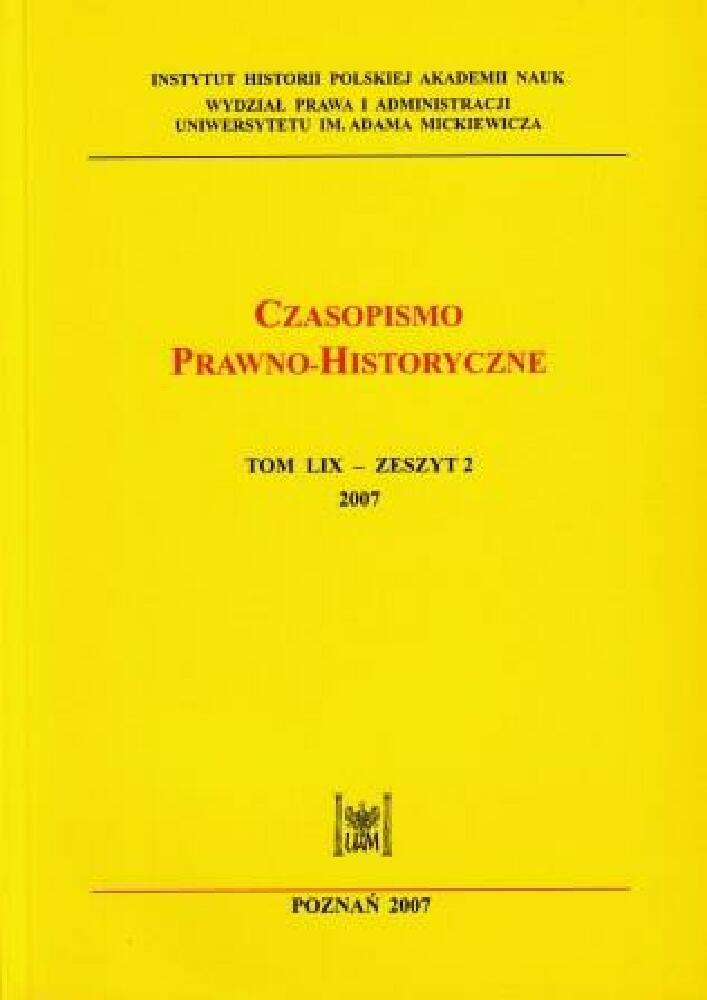Abstract
The husband’s rights as the owner of the dowry, due to its very nature, have always been subject to different limitations. One of the earliest restrictions put on husbands’ ownership rights was the prohibition to sell or otherwise dispose of a land constituting part of the dowry. The paper is an attempt to establish the contents of the prohibition of the alienation of dowry introduced by lex Iulia de fundo dotali 18 years BC.
The analysis of source materials shows that lex Iulia de fundo dotali conditioned the alienation of dowry land on the express consent given by the wife. Originally, the prohibition was formulated with regard to Italian estates because when lex Iulia was enacted those provinces enjoyed considerable jurisdictional freedom enabling them to use and apply local laws. Subsequent judicial interpretations extended the binding force of that prohibition onto provincial property as well, and ensured its applicability as long as the dotis causa remained outside the wife’s property. The prohibition remained valid during the course of marriage as well as upon its termination, until all property issues between the spouses had been settled (except in situations when the marriage terminated upon the wife’s death). Similarly, it was also binding before marriage, where the husband had acquired ownership of the property dotis causa before the marriage was concluded.
The prohibition applied both to ius civile and ius honorarium. It comprised all the acts that were dependent upon the will of the husband as the owner of the dowry, i.e. the actions or inactions in consequence of which the dowry would pass hands. As such, the prohibition was inapplicable in cases that were independent of the husband’s will, or which resulted in universal succession, or constituted public legal sanctions. This would happen in specific cases when the husband (i) became a subject of capitis deminutio maxima which naturally terminated the marriage and gave the wife a right to claim the dowry back, or (ii) had a sanction imposed upon him by the public authority (missio in possessionem), in which case the loss of property by the husband ought not to have a negative impact on the wife’s situation. Hence, the principle of lex Iulia de fundo dotali which applies to the new owner of the dowry land as well.
The prohibition of alienation of dowry land seemed to be the most efficient way of protecting the dowry ownership and was, at the same time, one of the ways of protecting a woman in the course of marriage, possibly securing her right to recover the dowry as soluto matrimonio.
Funding
Digitalisation and OA co-funded by the Minister of Education and Science (Poland) under contract no. BIBL/SP/0002/2023/1
License
Copyright © by Faculty of Law and Administration, Adam Mickiewicz University, Poznań, 2007OPEN ACCESS




